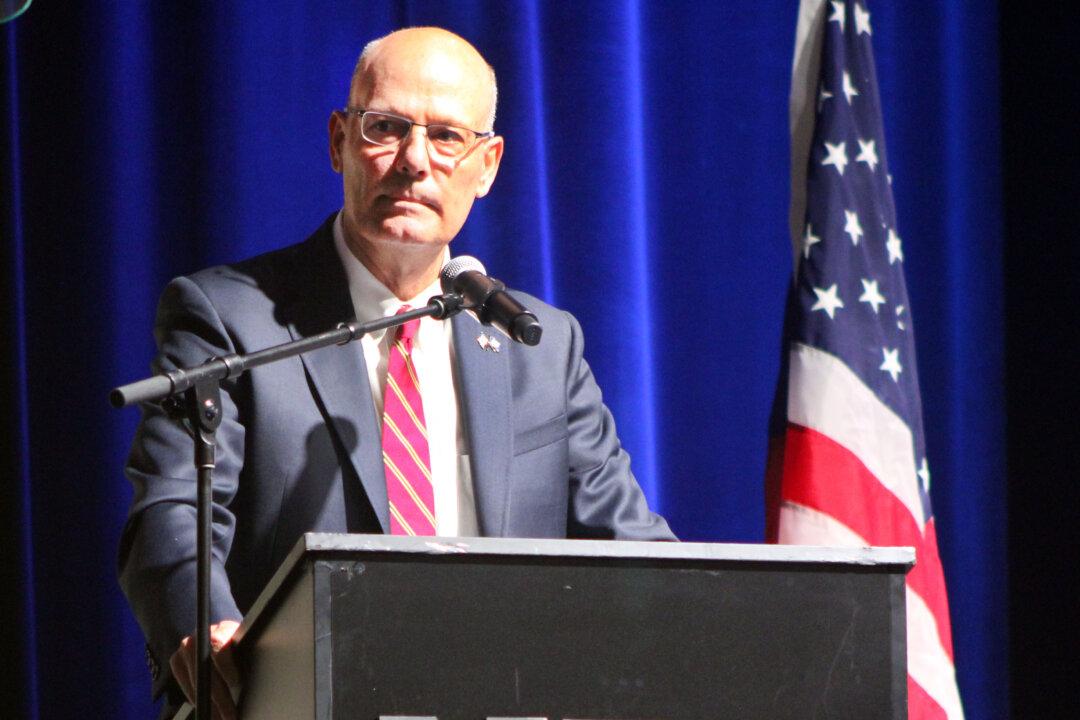Dr. Terry Gerard became a doctor because he wanted to help people.
The emergency room physician from Durant, Oklahoma, told The Epoch Times that he now feels he spends more time helping insurance companies get paid than he spends with his patients.
“Medicine has a lot of bureaucracy; it creates a barrier between the patient and the physician,” Dr. Gerard said. “We feel like we spend more time on a computer.”
He says overregulation and micromanagement by health insurance companies and regulators stifle his ability to provide care.
Dr. Brian Miller is an assistant professor of medicine at Johns Hopkins University and a nonresident fellow for the American Enterprise Institute. He said a simple solution to Dr. Gerard’s conundrum would be to let him own the hospital.
“We should allow physicians to compete fairly on a legal playing field,” Dr. Miller told the House Committee on Small Business’s Subcommittee on Oversight, Investigations, and Regulations on July 19.

Dr. Gerard spoke with The Epoch Times separately. He did not testify before the subcommittee.
While there is no outright ban, the regulations are such that it is almost impossible for a POH to be economically feasible. Congress hoped the prohibition would lower costs by increasing competition.
According to the study, precisely the opposite occurred.

The study claims that before the prohibition, POHs provided higher-quality care at a lower cost and with greater efficiency.
“In light of these findings, policymakers should reconsider restrictions on POHs with the goal of reinvigorating competition in hospital markets,” the study reads.
Dr. Miller said burdensome regulation from the Centers for Medicare and Medicaid Services (CMS), private insurers, and state and federal laws are making private medical practices a thing of the past.
According to Dr. Miller, CMS has more than 2,000 rules and guidelines for doctors. Miller said the burdensome regulations combined with the prohibition on POHs are killing competition and driving costs up.
“[Doctors] are practicing to document rather than treat patients,” Dr. Miller said. “It makes it impossible to run a business.”
Subcommittee Chair. Rep. Beth Van Duyne (R-Texas) said doctors have told her they can spend up to 90 percent of a patient visit entering information into a computer.
“It’s shocking to hear how much of their time is spent on compliance,” Ms. Van Duyne said.
According to Dr. Miller, the situation has forced many doctors out of private practice and into employment with corporate hospitals. He said this has reduced competition, driven costs up, and decreased quality.
“Small private practices allow greater customization of care,” he said.
Dr. Henry Punzi of the Trinity Hypertension and Metabolic Research Institute agreed. He told the subcommittee that he is “surrounded in red tape.” Dealing with myriad administrative tasks is distracting and can make it difficult for doctors to get the information they need to diagnose a patient correctly.
Doctor Advises Caution
Dr. Matthew Fiedler, a senior fellow at the Brookings Institution, agreed that administrative tasks increase costs. But, he cautioned against trashing the entire system.“Healthcare providers incur substantial costs to interact with insurers,” Dr. Fiedler said.
He said that, on average, 13 percent of a private practice’s revenue goes to administrative costs. This includes billing, gathering patient information, and getting preauthorization for recommended care and procedures. Still, he pointed out that regulations have a purpose.
For example, he said preauthorization may take time but saves money by preventing patients from undergoing unnecessary or redundant procedures. He cautioned against throwing the baby out with the bath.
Reforms Are Needed
According to Dr. Fiedler, the health care system is so large and diverse that any reforms must be carefully thought out and implemented based on local needs.He said three areas that could be reformed or eliminated from the Medicare and Medicaid systems are preauthorization, arbitration called for in the “No Surprises Act,” which prevents consumers from having to pay charges they weren’t expecting or didn’t understand, and the standardization of specific processes such as billing and coding, among other reforms.
He said addressing each would require careful examination of the specific regulations to ensure they provided appropriate protections without becoming burdensome.
“Exactly how to strike that balance is a hard question,” Dr. Fiedler said.
Rep. Roger Williams (R-Texas) asked the doctors if innovations such as telehealth could solve the problem, especially in hard-hit rural communities.
Dr. Miller said the best solution is to restore competition and allow doctors to work with insurers and hospitals without government interference. He said telehealth is good, but at some point, patients need an actual doctor.
“I think we need to decrease the regulatory burden so rural health care can exist. Telehealth will help, but the Star Wars, Star Trek world is probably at least 40 years away,” he said.





